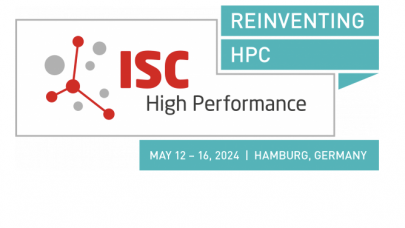The World of Health IT conference in Geneva, Switzerland attracted leaders in health care and IT industries from around the globe. As the first event of its kind, it addressed the need for a more integrated and interoperable health information space, and brought with it various examples of potential uses for Grid technology in health care industries.
Markku Äärimaa, former president of the Standing Committee of European Doctors (CPME), spoke to conference delegates about the biggest challenges facing health care. “IT applications will dominate most aspects of health care in the near future,” Äärimaa said. “With this, huge accumulations of patient data will appear as the health care system becomes increasingly computerized. This means new services will need to be developed.”
Grid systems may provide a means to manage the increasing volumes of patient data. Already, there are signs of improved health care arising from partnerships with Grid professionals.
Advancing Clinical Genomic Trials (ACGT) is a European Commission-funded project that uses Grid technologies to aid the treatment of cancer by providing a platform on which researchers and doctors can share clinical and laboratory data. The project was started after medical professionals realized that the best cancer treatments arose in areas where researchers were cooperating with each other.
“We realized that treatment for children with cancer of the kidney was very efficient because the clinicians involved were talking to each other and exchanging information,” said Remi Ronchaud, project coordinator of ACGT. “This information was providing better diagnosis, tumor-finding and selection of optimal cures for patients. Based on these facts, we are trying to implement a similar scenario for the treatment of breast cancer through a biomedical grid.”
Currently, researchers often have trouble sharing information because of discrepancies between data storage platforms. ACGT aims to provide a unifying architecture on which a defined and common method of storing data can be used, creating access to multiple dimensions of cancer information.
ACGT also wants to use this biomedical grid to aid the development of drug treatments. “Laboratory discoveries can be quickly deducted using the shared processing power of the grid for computer-intensive in silico simulations,” said Ronchaud. “Supposing we have four drugs that work against cancer cells, we can use the Grid to run trials to find what mix is the best for each type of tumor cell.”
Simulations use a large amount of processing power and create huge volumes of data, which can be processed quickly and efficiently using Grid resources. “We're going to be running a very power-thirsty computer program to integrate the data, and we need Grid technologies to process this information,” said Ronchaud.
His team also hopes that doctors will be able to use this grid to store patient data, referring to symptoms and signs of cancer, laboratory information, medical images, surgical results and genetic data. The ACGT platform will combine and cross-reference this data, which can then be accessed in order to match individual patient profiles with specific courses of treatment.
The ACGT project envisions a scenario whereby doctors can take biopsies before, during and after cancer treatment. The data taken from these biopsies is made anonymous and stored on the biomedical grid. New patients' genetic and biopsy information can be compared alongside a database of previous patient data. All this can be done rapidly using the shared processing power of the grid, and can result in effective personalized cancer treatment. Perhaps most importantly, though, is that this can all be done in a matter of days rather than months.
Broaching similar ground is Health-e-Child (HeC), a European-wide project which aims to improve health care industries by combining genomic and clinical data to provide doctors and researchers with a wealth of shared knowledge and resources to assist in the diagnosis and treatment of childhood illnesses.
Developed by IT experts at the University of West England (UWE), HeC is a collaboration of 15 partners around Europe, lead by Siemens Medical Solutions in Germany and funded by more than 12 million euros. “Health-e-Child will manage diverse Grid-based medical information and will provide instant access to an integrated resource for the purposes of disease modeling, knowledge discovery and medical decision support systems,” said Richard McClatchey, who is coordinating the informatics aspect of the project from the University of West England and providing expertise in managing a European Grid computer resource.
“The HeC project aims to integrate biomedical data to enable pediatricians to freely access everything from genomic, organ and tissue data to patient and population-based epidemiological data,” said McClatchey. “In other words, we provide the means to disentangle and make sense of vast sets of data in child health care.”
In the future, HeC's goal is to provide pediatric doctors and researchers uninhibited access to biomedical knowledge repositories for a much wider range of services, such as preventative health care, research, training and policy-making. One key objective of the project is to facilitate universal access to all records so that ambiguous diagnoses or complex symptoms that a doctor may rarely encounter in a patient can be compared with other similar cases, no matter where they are located across Europe.
“The grid will enable dynamic collections of doctors to work together collaboratively without re-locating,” said McClatchey. “Doctors will be able to use the system to compare how previous patients have responded to treatments, and make improved decisions about future recommendations, personalizing the health care that they are able to provide to individual children.”
The world's health care system is evolving, greatly aided by improvements in IT. Grid-based technologies can help facilitate this evolution by offering doctors and researchers the means to improve diagnoses, and helping to create rapid, effective and personalized patient treatment.



























































